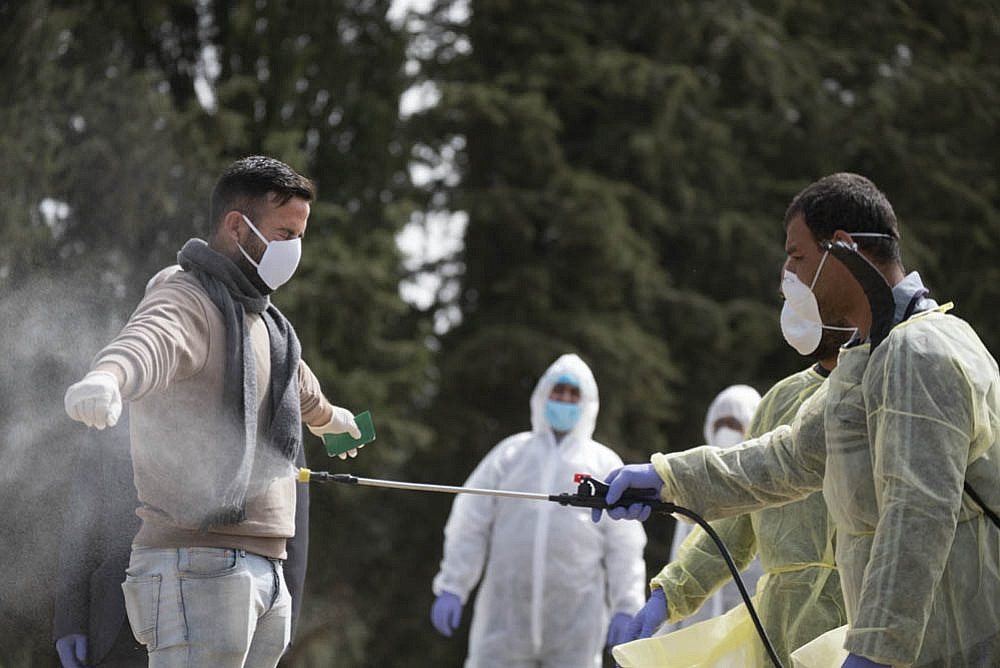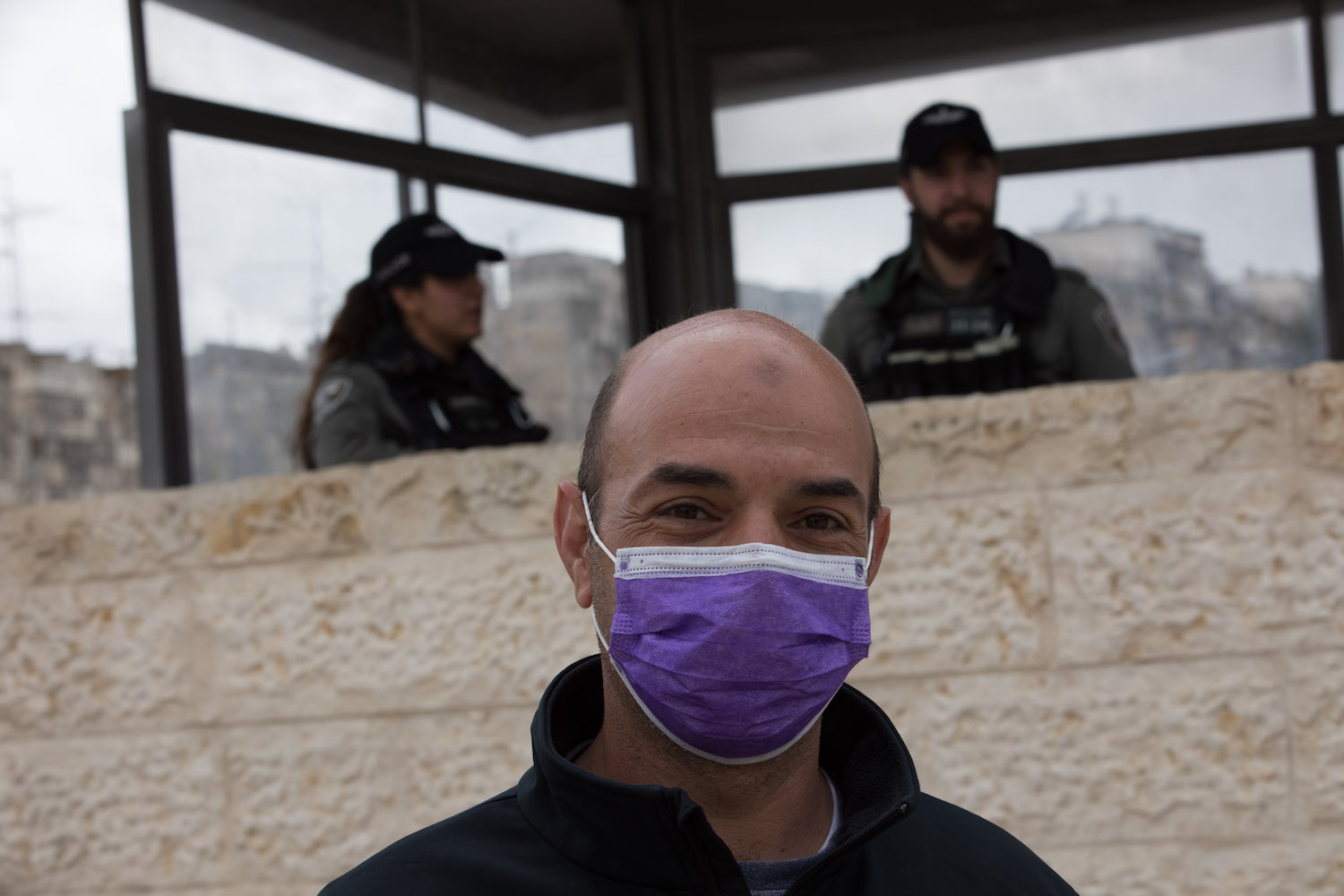In a speech to the nation delivered in mid-March, Israeli Prime Minister Benjamin Netanyahu awkwardly tried to address all the people who live under the effective control of his government — a difficult task when the very idea goes against his core beliefs.
Hard-pressed to find the right words to address his audience, Netanyahu came up with the following: “We can do this together. All citizens, all residents, whoever is listening to me now, follow these guidelines, and we will achieve our goal.”
If all the people who live in the territory under Israel’s control were treated as equals, Netanyahu would not have had to divide them into three categories to speak to them directly. Yet that is exactly how the Israeli regime works; it is neither humanistic nor universalistic, and relies on allocating different rights and liberties to different people according to their classification.
Let’s translate. Netanyahu’s emphasis on “all citizens” was, apparently, a rare attempt to acknowledge not only Jewish but also Palestinian citizens of Israel. By referring to “all residents,” the prime minister included more than 300,000 Palestinian non-citizens living in annexed East Jerusalem. His vague appeal to “whoever is listening to me now” hinted that the Palestinian subjects in the occupied West Bank and Gaza Strip may have forcibly entered into the prime minister’s consciousness.
That is everyone between the Jordan River and the Mediterranean Sea — citizens, residents, and subjects. All in all, 14 million people who do not share equal rights.
Normally, Netanyahu counts neither the residents nor the subjects. He blithely omits around five million people — all of them Palestinian — whose role in the system is to obey Israel’s diktats. He also usually tries to overlook Palestinian citizens of Israel, who make up over a fifth of the country’s citizenry, and whom he has called “supporters of terrorism.” This means that the prime minister routinely counts only half of the people who live under his government’s rule, all of them Jewish citizens.
Yet these are unusual times. The health risk of the coronavirus does not obey Israeli decrees. In fact, it undermines the very pillars of the Israeli regime, because it does not distinguish between different classes of people. A prime minister with a particularistic, ethnocentric, racist worldview has come up against a universal threat.
Netanyahu surely understands the danger this virus poses. He realizes that having moved hundreds of thousands of Jewish citizens into some 250 West Bank settlements — where they live among three million Palestinian subjects — this fight cannot be won without a universalist approach. If he chooses not to take into account all the millions of people who share this land, the virus will spread and defeat everyone.
Netanyahu also must surely know that in the blockaded Gaza Strip, conditions are ripe for a horrific spread of the pandemic. Israel has demonstrated its power to cut off Gaza from the rest of the world through its 13 years of siege. This may have distanced Gaza from the ailing world; but within one of the most densely-populated strips of land on earth, how realistic is social distancing as a way to combat a pandemic?
In northern Italy, a Western healthcare system collapsed and the death toll reached 10 percent of all those infected. In Gaza, the healthcare system had collapsed well before the first COVID-19 patient as a result of Israel’s policy. If half of Gaza’s locked-up population were infected, a 10 percent fatality rate would mean the death of 100,000 people.

Obviously, the prime minister’s racist rhetoric and worldview extend beyond his speeches. Even now, Netanyahu continues to incite against Palestinian citizens of Israel and undermine the legitimacy of their political representation. Some 140,000 Palestinian residents who live in neighborhoods beyond the separation barrier in Jerusalem wake up every day to the fear of being cut off from their city and the healthcare system that is meant to take care of them and their families.
Meanwhile, Israeli soldiers continue to oppress Palestinians in the West Bank, some now donning protective medical gear. At the Maccabim checkpoint, police officers left a Palestinian laborer showing suspected corona symptoms by the roadside. Settler violence surges, unabated.
That is what Netanyahu should have said to whoever was listening to his speech: that “a virus that doesn’t distinguish between anyone, happy or sad, Jewish or non-Jewish” (as he said) is a universal danger by definition. That this kind of threat must be met by a universalist policy that “does not distinguish between anyone.” That he will eradicate the division between citizens, residents, and subjects. That all of them are human beings who need to be protected. That defending all of us is his responsibility.
Netanyahu, of course, will say nothing of the sort. He cannot say it because he is a racist. Racism always corrupts the soul — but many times, the price can also be paid in lives. This is one of those times.


